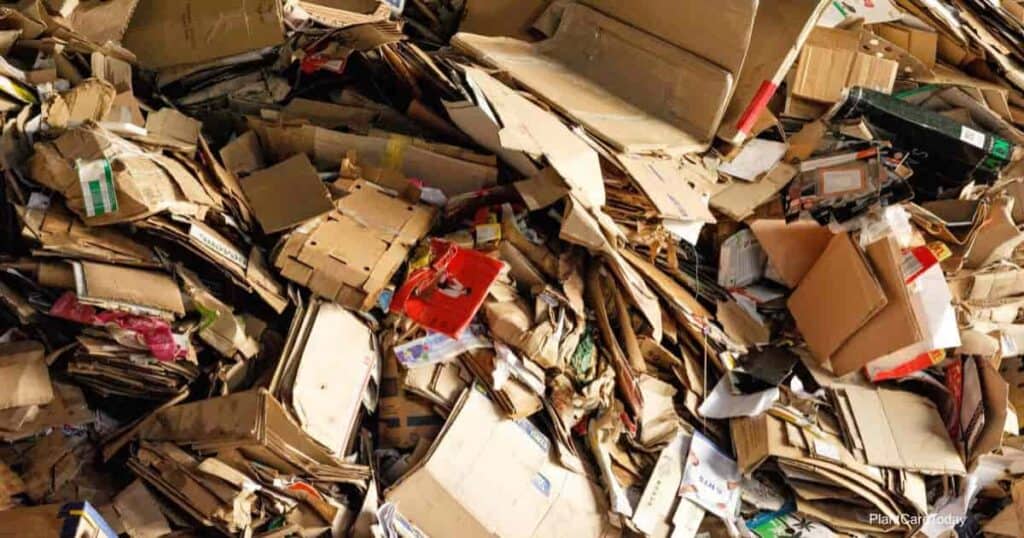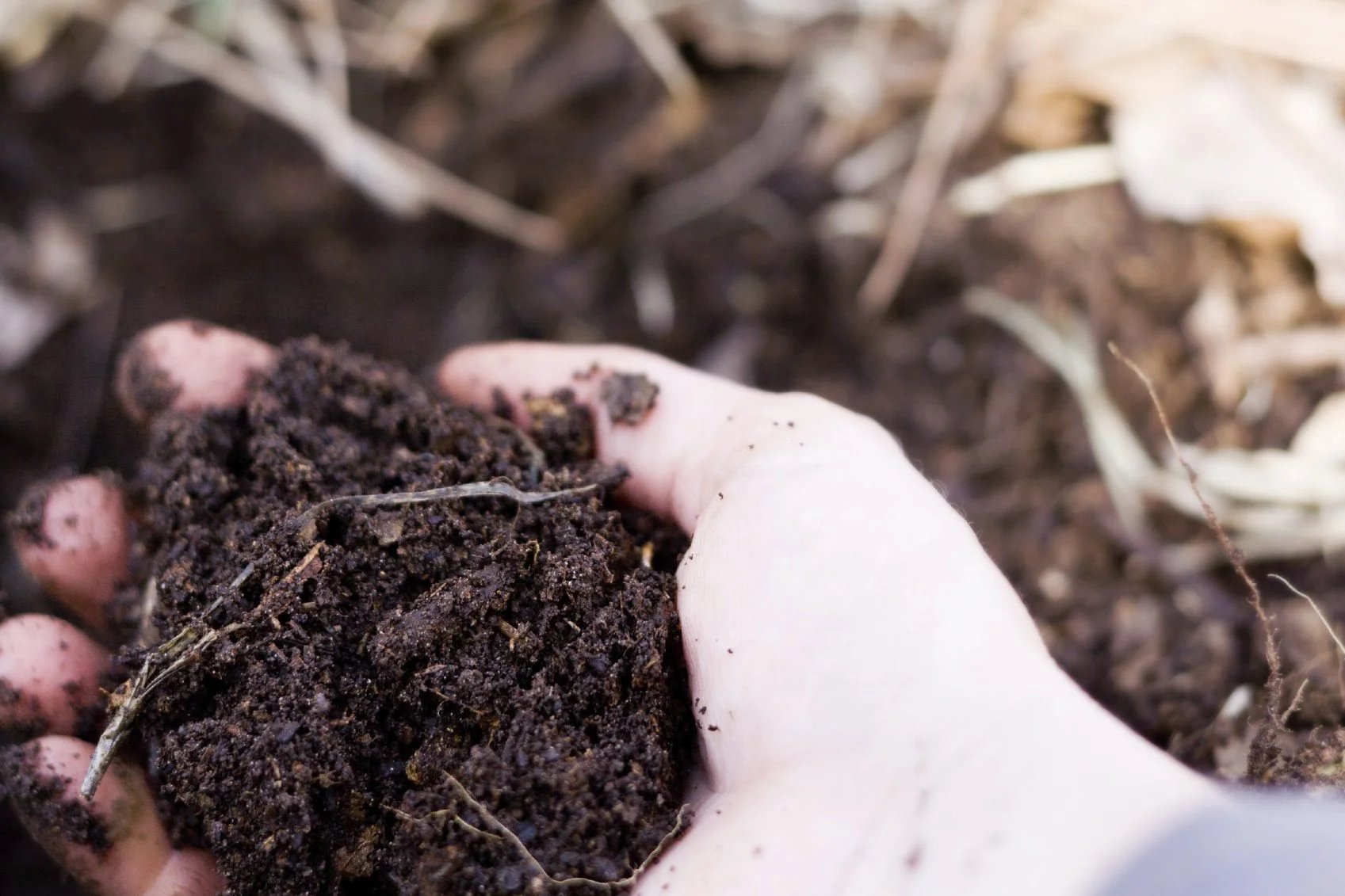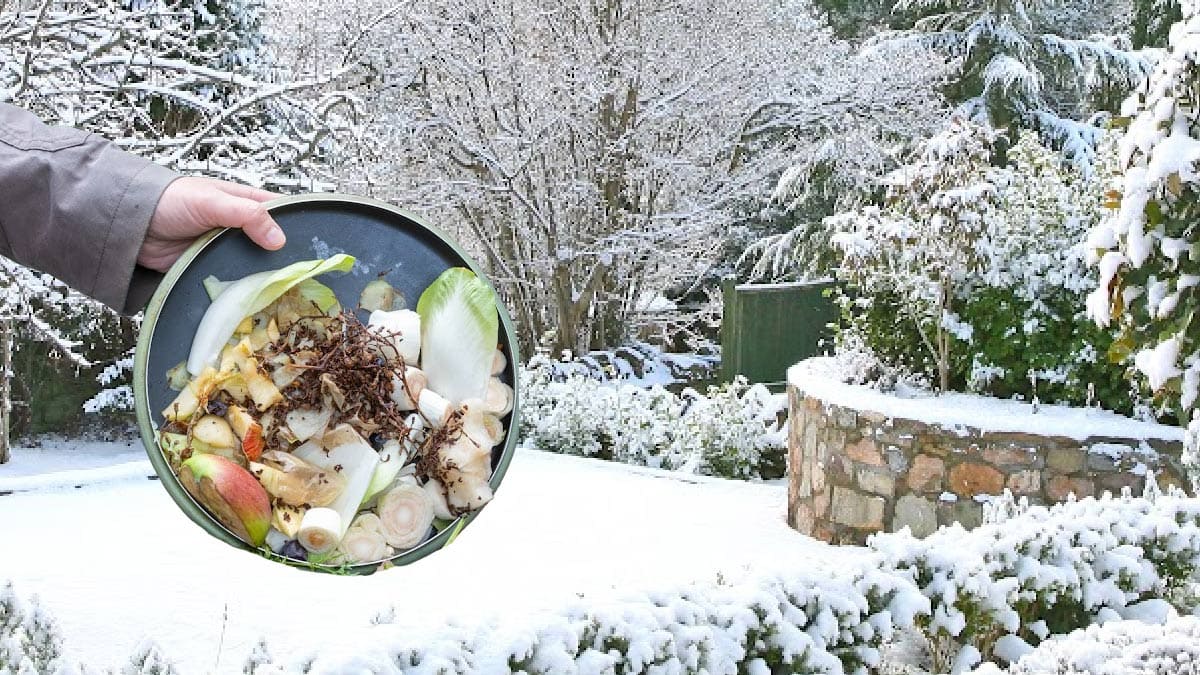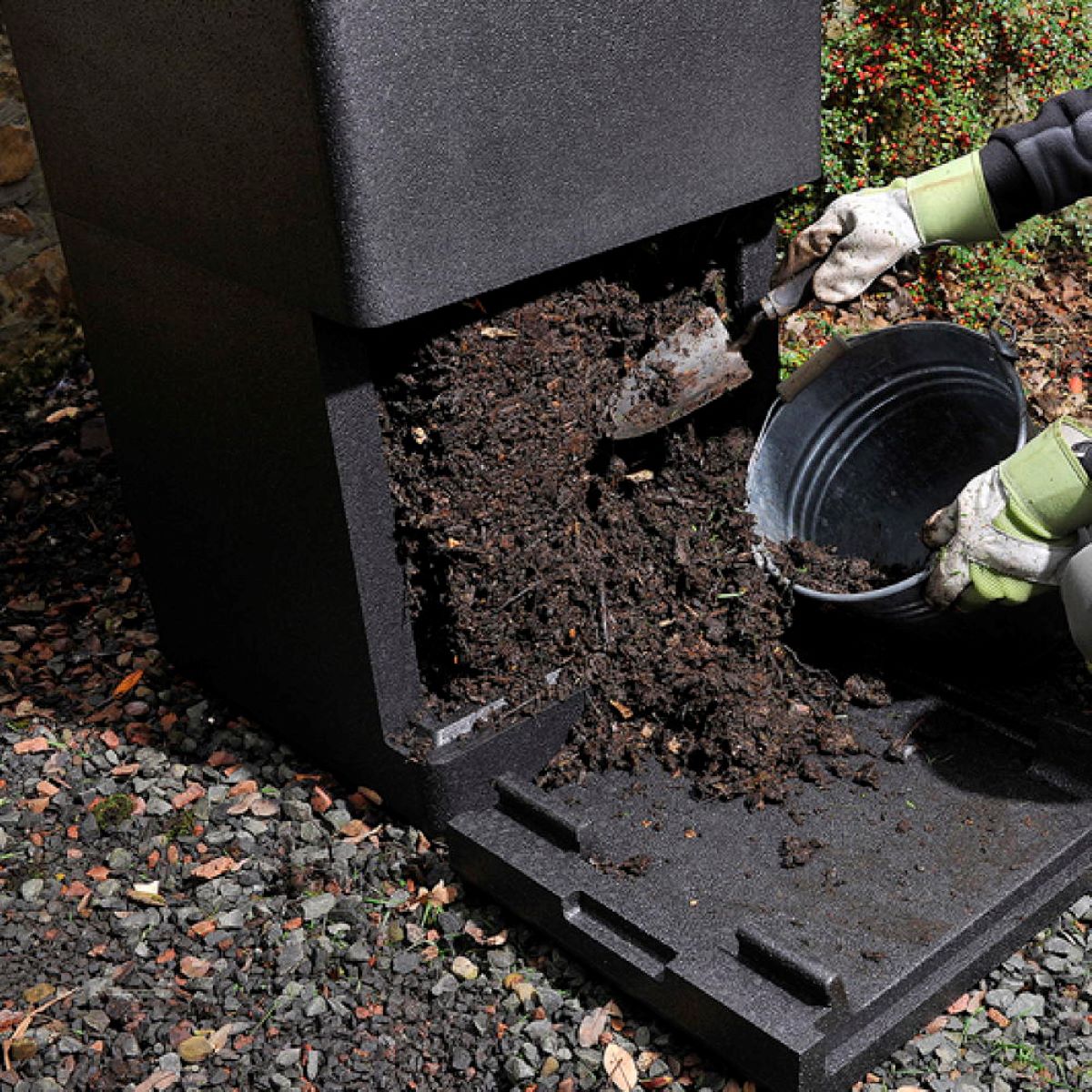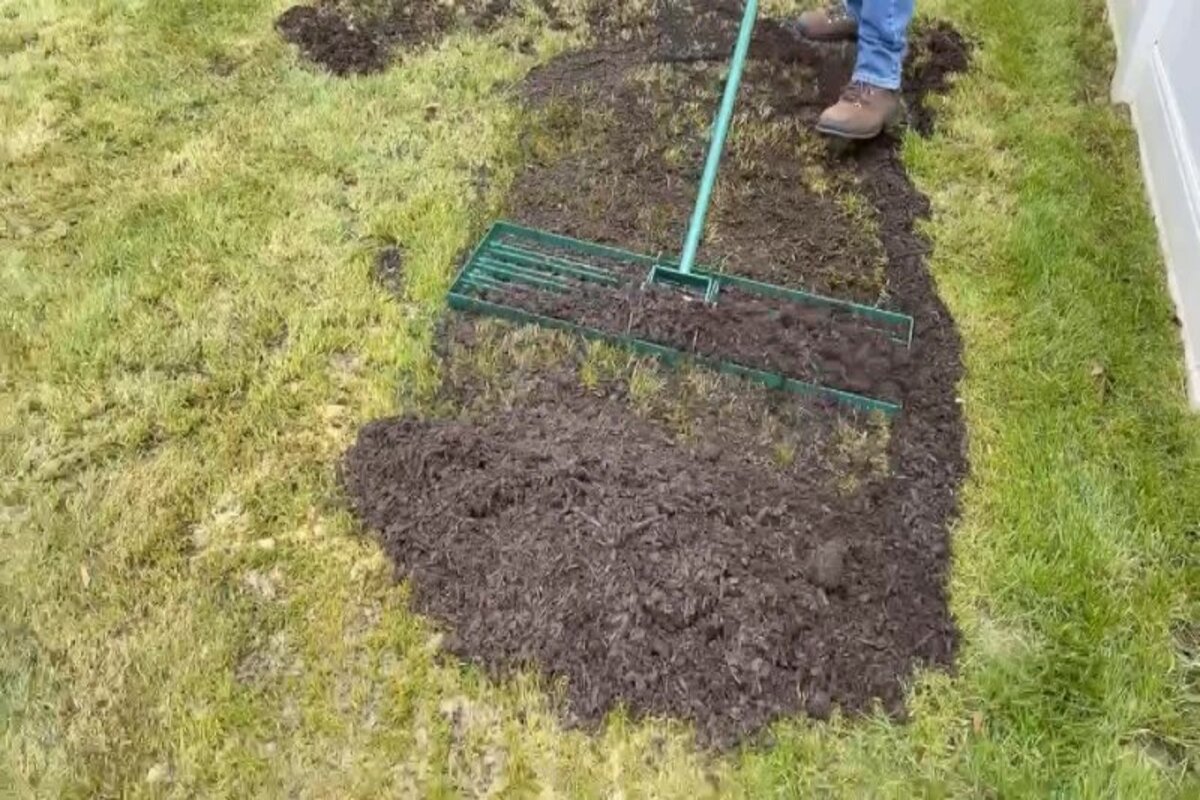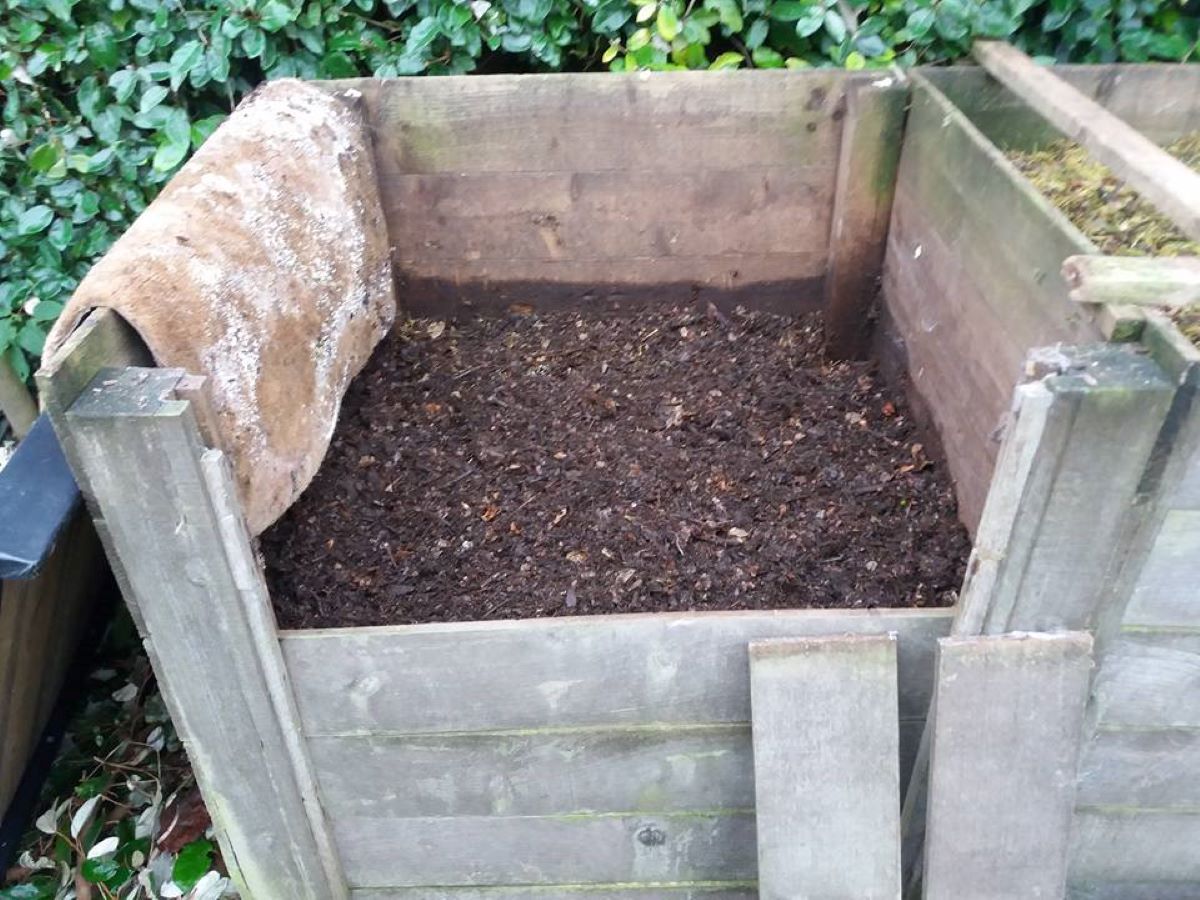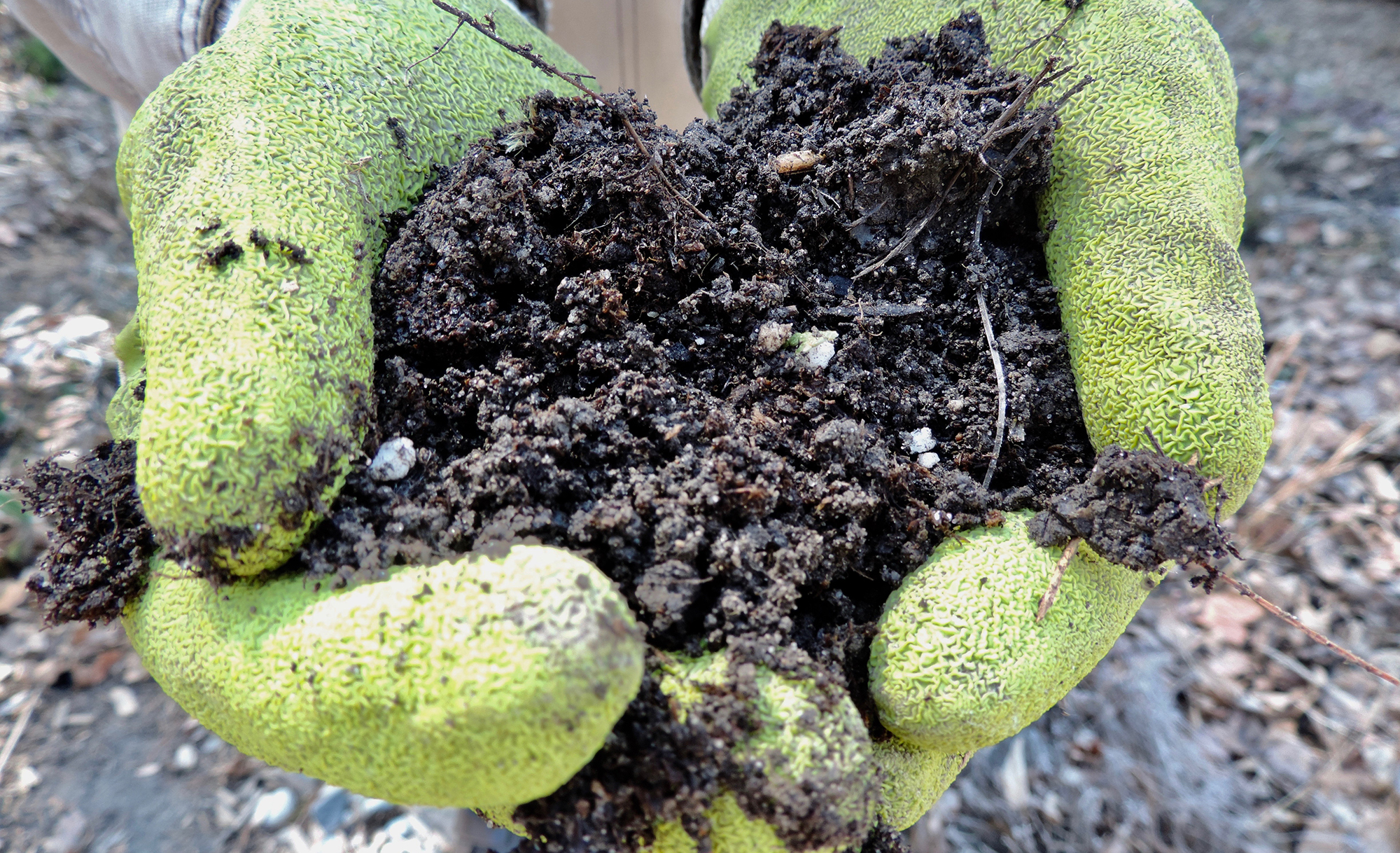Home>Gardening Tips and Tricks>Eco-Friendly Gardening>How To Compost In An Apartment


Eco-Friendly Gardening
How To Compost In An Apartment
Modified: January 22, 2024
Learn how to practice eco-friendly gardening in your apartment by composting. Discover the best methods and tips for successful apartment composting.
(Many of the links in this article redirect to a specific reviewed product. Your purchase of these products through affiliate links helps to generate commission for Chicagolandgardening.com, at no extra cost. Learn more)
Table of Contents
- Introduction
- Benefits of Composting in an Apartment
- Choosing the Right Composting Method
- Materials Needed for Apartment Composting
- Setting Up a Composting System in Your Apartment
- Maintaining Your Apartment Compost
- Troubleshooting Common Composting Issues
- Harvesting and Using Your Apartment Compost
- Conclusion
Introduction
Welcome to the world of eco-friendly gardening! If you’re living in an apartment and have a passion for gardening, composting is an excellent way to contribute to the environment and grow your own plants, herbs, or vegetables. Composting is the natural process of decomposing organic waste into nutrient-rich soil that can be used to nourish your plants.
Composting is not only beneficial for the environment but also offers several advantages for apartment dwellers. It allows you to recycle kitchen scraps and reduce the amount of waste that goes into landfills. Additionally, by composting, you can produce high-quality soil that retains moisture, promotes healthy plant growth, and reduces the need for synthetic fertilizers.
Living in an apartment does not mean you have to miss out on the benefits of composting. With a little creativity and some helpful tips, you can start composting in your apartment and turn your kitchen waste into black gold for your plants.
In this article, we will guide you through the process of composting in an apartment, from choosing the right method to maintaining your compost and harvesting the finished product. By following our advice, you can create a sustainable and eco-friendly gardening practice right at home.
Benefits of Composting in an Apartment
Composting in an apartment offers numerous advantages, both for the environment and for your personal gardening journey. Here are some of the key benefits:
- Reducing landfill waste: By composting your kitchen scraps and organic waste, you can significantly reduce the amount of waste you contribute to landfills. In turn, this helps to minimize greenhouse gases and reduces the need for additional landfill space.
- Creating nutrient-rich soil: Composting allows you to create nutrient-rich soil by recycling organic materials. This compost provides essential nutrients, improves soil structure, and enhances its ability to retain moisture. As a result, you’ll have healthier plants and vibrant gardens in your apartment.
- Reducing the need for synthetic fertilizers: When you compost, you’re producing your own natural fertilizer. This means you can reduce or eliminate the need for synthetic fertilizers, which can be harmful to the environment and costly to purchase. Compost enriches the soil with organic matter and promotes long-term soil health.
- Enhancing water retention: Compost helps to retain moisture in the soil, reducing the frequency and amount of water needed for watering your plants. This is especially beneficial for apartment gardeners who may have limited access to water or face water restrictions.
- Promoting strong plant growth: The nutrient-rich compost provides essential elements for plant growth. It improves soil fertility, encourages beneficial microbial activity, and enhances root development. As a result, you’ll witness stronger, healthier plants that are more resistant to diseases and pests.
- Supporting sustainable gardening practices: Composting is an eco-friendly gardening practice that aligns with sustainable living. By actively composting in your apartment, you’re contributing to a circular economy and promoting a greener and more environmentally conscious lifestyle.
With these remarkable benefits, composting in an apartment is a rewarding and sustainable way to take your gardening to new heights. In the next section, we’ll explore the various composting methods that can be adapted to suit apartment living.
Choosing the Right Composting Method
When it comes to composting in an apartment, there are several methods you can choose from, depending on the space, time, and resources available to you. Here are three popular composting methods that work well in apartment settings:
- Indoor composting: Indoor composting methods such as vermicomposting and bokashi fermentation are ideal for apartment dwellers with limited space. Vermicomposting involves using worms to break down organic waste, while bokashi fermentation utilizes a specialized composting system and beneficial microorganisms. Both methods can be done in small containers or bins, making them suitable for apartments.
- Outdoor composting: If you have access to an outdoor space such as a balcony or patio, you can consider outdoor composting methods such as a compost tumbler, compost bin, or compost pile. These methods require a bit more space but offer the advantage of handling larger amounts of organic waste. Outdoor composting allows for the decomposition process to occur naturally with the help of sunlight, moisture, and air circulation.
- Community composting: Another option for apartment dwellers is to participate in community composting programs. Many urban areas now have community gardens or composting initiatives where you can drop off your organic waste and contribute to a larger composting system. This option is particularly useful if you don’t have the space or time to manage your own composting system.
When choosing the right composting method for your apartment, consider factors such as available space, time commitment, odor control, and personal preferences. Each method has its own advantages and may require different levels of management and maintenance. It’s important to weigh your options and select a method that suits your specific needs and living situation.
Now that you have an idea of different composting methods, let’s move on to the next section, where we’ll discuss the materials you’ll need to get started with apartment composting.
Materials Needed for Apartment Composting
Before you start apartment composting, it’s important to gather the necessary materials to ensure a successful composting process. While the specific requirements may vary depending on the composting method you choose, here are some essential materials you’ll likely need:
- Compost bin or container: Select a suitable compost bin or container that fits your space and composting method. It can be a specially designed indoor compost bin, a small lidded container for vermicomposting, or an outdoor compost tumbler or bin. Ensure the container has proper ventilation and drainage to allow air circulation and prevent excess moisture buildup.
- Organic waste: Collect organic waste from your kitchen, such as fruit and vegetable scraps, coffee grounds, tea bags, eggshells, and plant-based leftovers. Avoid adding dairy products, meat, or oily foods as they can attract pests and create unpleasant odors in an apartment setting.
- Carbon-rich materials: Balance the nitrogen-rich kitchen scraps with carbon-rich materials, such as shredded newspaper, dried leaves, cardboard, or sawdust. These materials provide the “brown” component to your compost, aiding in the breakdown process and preventing odors.
- Red wigglers (for vermicomposting): If you choose vermicomposting, you’ll need to acquire red wiggler worms. These worms help with the decomposition process and create nutrient-rich worm castings, or vermicompost.
- Bokashi composting kit (for bokashi fermentation): For bokashi fermentation, you’ll need a bokashi composting kit, which typically includes airtight containers, bokashi bran (a mixture of microorganisms), and a drainage system to collect the liquid, or leachate, produced during the fermentation process.
- Shredder (optional): If you’re composting paper products or larger items, a shredder can help break them down into smaller pieces, allowing for faster decomposition. However, this is an optional tool and not necessary for all apartment composting methods.
- Moisture meter (optional): A moisture meter can be useful to monitor and maintain the right level of moisture in your compost. This tool helps prevent the compost from becoming too dry or too wet, ensuring optimal conditions for decomposition.
- Gloves and gardening tools: It’s advisable to use gloves when handling organic waste and compost to maintain hygiene and prevent any potential infections. Additionally, basic gardening tools like a trowel or shovel may be handy for mixing and turning the compost as needed.
By gathering these materials, you’ll be well-prepared to start your apartment composting journey. In the next section, we’ll guide you through setting up a composting system in your apartment.
Setting Up a Composting System in Your Apartment
Now that you have your materials ready, it’s time to set up a composting system in your apartment. The specific steps will vary depending on the composting method you’ve chosen, but here are some general guidelines to help you get started:
- Choose the right location: Find a suitable spot in your apartment for your composting system. This could be a corner of your kitchen, a closet, under the sink, or even a balcony or patio if you have access to outdoor space. Ensure proper ventilation and temperature control to facilitate the composting process.
- Set up your compost bin or container: Place your chosen compost bin or container in the designated location. Make sure it’s stable and easily accessible for adding materials and managing the compost. If using an indoor compost bin, line the bottom with a layer of newspaper or a compostable liner to help with moisture control and prevent odors.
- Add a layer of carbon-rich materials: Start by adding a layer of carbon-rich materials, such as shredded newspaper, dried leaves, or cardboard, to the bottom of your compost container. This provides a base layer for your compost and helps absorb excess moisture.
- Add kitchen scraps and organic waste: Begin adding your kitchen scraps and organic waste to the compost bin. Ensure a balance between nitrogen-rich “green” materials (e.g., fruit and vegetable scraps) and carbon-rich “brown” materials (e.g., shredded paper). Alternate layers of green and brown materials to maintain balance as you add waste over time.
- Moisture control: Monitor the moisture level of your compost regularly. It should be moist, like a wrung-out sponge, but not soggy. If the compost is too dry, add a small amount of water. If it’s too wet, add more carbon-rich materials to absorb the excess moisture. Use a moisture meter if desired to maintain the optimal moisture range.
- Manage the compost: Depending on your chosen method, you may need to mix or turn the compost periodically to promote aeration and decomposition. Follow the instructions specific to your composting method. For vermicomposting, avoid disturbing the worm habitat too often, and for bokashi fermentation, make sure to drain the leachate regularly.
- Monitor and adjust: Regularly check your compost for any signs of issues such as foul odors, pests, or excessive moisture. Adjust the balance of green and brown materials as needed to maintain optimal conditions for decomposition.
Remember, the key to successful apartment composting is to be consistent and patient. It may take a few weeks or months for your compost to fully break down into nutrient-rich soil. As you continue to add organic waste and manage your compost, you’ll notice the transformation and be one step closer to achieving your eco-friendly gardening goals.
In the next section, we’ll discuss how to properly maintain your apartment compost to ensure its success and avoid common issues that may arise.
Maintaining Your Apartment Compost
Maintaining your apartment compost is essential to ensure its success and continue the decomposition process. Here are some key maintenance tasks you should regularly perform:
- Add organic waste: Continue adding kitchen scraps and organic waste to your compost regularly. Aim for a balance between nitrogen-rich green materials and carbon-rich brown materials to maintain the optimal carbon-to-nitrogen ratio. Chop or shred larger waste items for faster decomposition.
- Turn or mix the compost: Depending on your composting method, periodically turn or mix the compost to promote aeration and even decomposition. This helps distribute moisture and oxygen, speeding up the breakdown process. Avoid overmixing or disturbing the compost too frequently to allow for the natural decomposition process to occur.
- Monitor moisture levels: Regularly check the moisture levels in your compost. It should feel moist, but not overly wet or dry. Adjust the moisture content by adding water or carbon-rich materials as needed. Maintaining the right moisture level is crucial for the composting process and prevents unpleasant odors or mold growth.
- Avoid pests and odor issues: To prevent pests and odors, bury any exposed food waste under a layer of carbon-rich materials. This helps deter pests and keeps the compost smelling fresh. Additionally, ensure a proper balance of green and brown materials to prevent any foul odors from developing.
- Manage temperature and airflow: Composting works best within a certain temperature range. Ensure your compost remains within this range by monitoring the ambient temperature and providing proper airflow and ventilation. Avoid extreme temperature fluctuations and keep the compost container covered to retain heat and maintain a consistent temperature.
- Adjust the composting process: As you gain experience with apartment composting, you may need to make adjustments to the composting process. This could include altering the composition of materials, tweaking the moisture content, or modifying the composting schedule. Pay attention to any changes in the compost and make adjustments accordingly.
- Be patient: Composting takes time, and it’s important to be patient. Depending on the composting method and conditions, it can take several weeks to several months for the compost to reach maturity. Trust the process and continue providing the necessary care and maintenance.
By following these maintenance tips, you’ll ensure that your apartment compost stays healthy and productive. Regular monitoring and adjustments will help you avoid common issues and create nutrient-rich compost for your plants. Now that we’ve discussed maintaining your compost, let’s address some common troubleshooting tips in the next section.
Troubleshooting Common Composting Issues
Composting in an apartment may sometimes encounter certain issues. Here are some common problems you may face and tips to troubleshoot them:
- Unpleasant odors: If your compost has a foul smell, it may be due to an imbalance of materials or excessive moisture. Add more carbon-rich materials and aerate the compost to improve airflow. Additionally, ensure that you bury food waste under a layer of brown materials to reduce odor.
- Pest infestation: If you find pests in your compost, such as fruit flies or gnats, bury the food waste deeper into the compost or cover it with more brown materials. You can also try sprinkling diatomaceous earth or placing a layer of mesh on top of the compost to deter pests.
- Excessive moisture: If your compost is too wet and becomes slimy, add more carbon-rich materials like shredded paper or dry leaves to absorb the excess moisture. Turn the compost to enhance aeration and ensure proper drainage. Avoid overwatering or adding wet materials to maintain an ideal moisture balance.
- Slow decomposition: If your compost is taking longer to decompose than expected, check if it has enough nitrogen-rich materials. Increase the ratio of green materials (e.g., fruit and vegetable scraps) to carbon-rich materials. Ensure adequate moisture, proper temperature, and sufficient oxygen levels by turning the compost regularly.
- Mold growth: Some mold growth is normal in compost, but excessive or fuzzy mold may indicate an issue. Ensure proper aeration and avoid overwatering. Mix the compost more frequently and add more carbon-rich materials to promote balanced decomposition and reduce mold growth.
- Fruit fly infestation: Fruit flies can be attracted to compost bins. To prevent them, make sure to bury fruit and vegetable scraps under a layer of brown materials to minimize exposure. Keep the bin covered or use a compost bin with a secure lid to prevent entry. Empty the compost more frequently if necessary.
- Excessive heat: High temperatures in your compost can cause the materials to dry out and slow down decomposition. If this occurs, add more moisture to the compost by spraying water or adding moistened brown materials. Adjust the carbon-to-nitrogen ratio and ensure proper aeration to regulate the temperature.
Remember that everyone’s composting experience is unique, and you may encounter different challenges along the way. Don’t be discouraged by setbacks – view them as opportunities to learn and improve your composting system. With time and practice, you’ll master the art of apartment composting and reap the benefits of rich, nutrient-packed compost.
Now that we’ve covered common troubleshooting tips, let’s move on to the next section where we’ll explore harvesting and using your apartment compost.
Harvesting and Using Your Apartment Compost
After patiently tending to your apartment compost, it’s time to enjoy the fruits of your labor by harvesting and using the finished product. Here’s a step-by-step guide to help you make the most of your apartment compost:
- Check for maturity: Before harvesting your compost, ensure that it has reached a mature and crumbly texture. The compost should be dark and have a pleasant earthy smell. If there are still recognizable materials, large chunks, or an unpleasant odor, allow the compost to continue decomposing.
- Separate the compost: Depending on the size and type of your composting system, separate the mature compost from any remaining organic materials or undecomposed matter. You can use a screen or sieve to sift out any larger particles and maintain a fine, consistent texture. The remaining materials can be returned to the compost for further decomposition.
- Store the harvested compost: Transfer the harvested compost to a clean container or bag for storage. Keep it in a cool, dry place protected from direct sunlight. Airtight containers or resealable bags help maintain the quality of the compost until you’re ready to use it.
- Use your apartment compost: Your harvested compost can be used in various ways to nourish your indoor or outdoor plants. Mix it into the soil for potted plants, use it as a top dressing for existing plants, or incorporate it into your garden beds. The compost will provide essential nutrients, improve soil structure, and enhance plant growth.
- Compost tea: Another option is to create compost tea by steeping a small amount of compost in water. Use a bucket or container, add compost, and let it steep for a few days, stirring occasionally. The resulting liquid can be poured around your plants, providing a nutrient-rich boost.
- Continue the composting cycle: After harvesting, continue composting by adding fresh organic waste to your composting system. Remember to maintain the carbon-to-nitrogen ratio, monitor moisture levels, and manage the compost as you did before. This ongoing cycle allows you to continuously produce nutrient-rich compost for your gardening endeavors.
By harvesting and using your apartment compost, you’ll witness the transformation of waste into a valuable resource for your plants. Enjoy the benefits of healthier plants, improved soil fertility, and reduced reliance on synthetic fertilizers.
Now that we’ve explored the process of harvesting and using your apartment compost, let’s conclude our journey by summarizing key points in the final section.
Conclusion
Congratulations on embarking on the journey of apartment composting and eco-friendly gardening! Composting in an apartment is not only a sustainable practice but also a rewarding one. By recycling your kitchen scraps and organic waste, you can reduce landfill waste, create nutrient-rich soil, and promote healthier plant growth.
Throughout this article, we’ve discussed the benefits of composting in an apartment, the various composting methods suitable for small spaces, and the materials needed to get started. We’ve also covered the importance of maintaining your apartment compost, troubleshooting common issues that may arise, and the process of harvesting and using your compost.
Remember, apartment composting may require some initial effort and adjustments, but with consistency and patience, you’ll be able to create rich, nutrient-dense compost that will benefit your plants and the environment. Don’t be discouraged by setbacks or challenges – view them as opportunities to learn and improve your composting skills.
As you continue your eco-friendly gardening journey, consider spreading the word about apartment composting and inspiring others to join you. Together, we can make a significant difference in reducing waste, improving soil health, and promoting a greener future.
So, take the knowledge you’ve gained from this article, put it into practice, and enjoy the rewards of composting in your apartment. Not only will you be contributing to a healthier environment, but you’ll also experience the joy of growing your own plants, herbs, or vegetables with the help of your homemade compost.
Happy composting and happy gardening!

